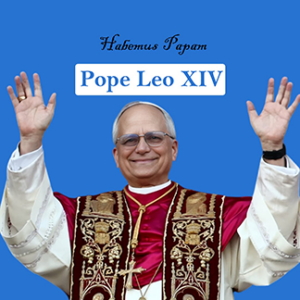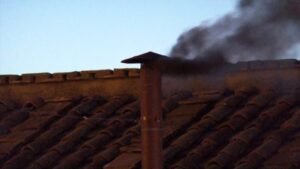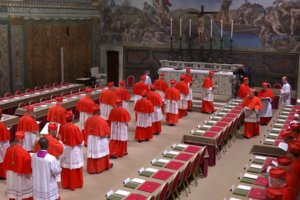KENYA: I Am Happy With The Progress That CUEA Has Made, Says University Chancellor

A year ago, the Secretary of the Congregation of Catholic Education in the Vatican, His Excellency Most Rev. Angelo Vincenzo Zani asked the owners of the Catholic University of Eastern Africa to go to Rome to give a report on the state of affairs at the institution. At the end of that meeting Archbishop Angelo Zani disclosed his intention to have a meeting with the ecclesiastical universities and faculties on the African continent, targeting the institutions in Central Africa, Cameroun, the Democratic Republic of Congo and Kenya. The CUEA delegation proposed its institution as a possible venue.
The November 29-30 2019 meeting between the Congregation of Catholic Education and the Chancellors, Vice Chancellors, Rectors, Presidents and Deans of the Ecclesiastical faculties in Africa and Madagascar at CUEA in Nairobi was, in fact, the realization of that conversation.
AMECEA Online sought an exclusive interview with the AMECEA Chairman who was attending as Chancellor of CUEA to find out what the Apostolic Constitution Veritatis Gaudium and this meeting had to offer to CUEA as a regional university. While he admits that there are some challenges that must be addressed in the light of Veritatis Gaudium, he is convinced that CUEA is on the right truck to solve its problems and continue to grow and bear fruits in AMECEA region.
Below is the interview with the AMECEA Chairman and CUEA Chancellor His Excellency Rt. Rev. Charles Kasonde.
This meeting with the Secretary of the Congregation of Catholic Education at the Vatican His Excellency Most Rev. Angelo Vincenzo Zani, what was it all about?
It was a presentation of the Apostolic Constitution Veritas Gaudium which Pope Francis released last year to the regional heads of ecclesiastical institutions and faculties. The Holy Father’s document has a special part that addresses them and their development. This is what they were sharing.
As these learning institutions are flourishing, the Congregation for Catholic Education would want them to revise their statutes to ensure that they are well managed and to promote their growth so that they are academic centres of excellence in their way of delivering ecclesiastical studies. What His Excellency Archbishop Zani has done is to do the transmission of that message as coined in the Apostolic Constitution of Pope Francis regarding ecclesiastical faculties.
The intention of the Vatican is to consolidate all efforts in the development of ecclesiastical courses and faculties so that they are revisited and re-energized and that Catholic institutions that have the ecclesiastical status are in accordance with what the Congregation of Catholic Education prescribes.
Archbishop Zani has also emphasized about creating a culture of dialogue between and among Catholic institutions so that they are not strangers to each other, but rather that they work together for a common purpose and that together they improve their delivery of ecclesiastical courses.
As Vice Chancellor, how do you look at Archbishop Zani’s message in the context of the the situation of CUEA today?
I am appreciating the efforts that are being done by the new CUEA management. Almost at every instance you see that there are things happening and stability is being created. To a certain extent, the disappointing thing is to realize how some revered members of our academic staff were involved in the issues that negatively affected the University. Even now as things are settling down, you still see that some are hanging on to the past. They are caught up in this web.
So…, (his paused with expression of disappointment) … it is very surprising that some people could have criminal intentions for an institution. It is very sad.
I am happy though with the progress that has been made. The debt is being reduced every day, that is what is important. This is unlike the situation last year when the debt was increasing every day. This time, it is being reduced every day, with a small amount though but that is the way to go. I am hopeful that things will be okay.
The number of students was dwindling: we sunk down to 4,000, but today we are talking of 6,000. Already in a year we see that the number has increased, which is commendable. So, I am hopeful that the institution is on the road to recovery and that every day things are becoming better. For such an institution, the more students you have higher the chances of survival. So, I would like to encourage that spirit.
When I came in October this year, I scheduled meetings with the priests and Religious at CUEA because in most cases they were the ones who were cited in the pilferage. In particular, I addressed the Faculty of Theology because this is where we have a large number of priests – leave aside the Religious Brothers and Sisters, but the priests.
The problem I addressed was simply as follows, ‘When all these things were happening, where were you, and what were you doing? How have you contributed to this situation? And how do you look at the future.’ We share a lot on dedication to ensure that all the under-hand methods are cut off. So, it gives me hope that we are moving that way.
And it is not a hope from without. It is hope because I have seen substantively in the operations of the University and in the settling and recovering of our debt.
On what the Apostolic Constitution is proposing to ecclesiastical universities and faculties, do you see it workable for CUEA?
What Rome is proposing is in fact, an enhancement of what we already know, which is very good except that nowadays people are reluctant to take Theology. Those who are taking it are those going for the ministry of priesthood. The others think it is a subject that may not be progressive especially when it comes to employment opportunities. It will mean you have to be confined to the Church; actually this is what it is, a Discipline within the Church.
Even at the University (CUEA), it is the Department that is suffering financially because it has almost one lecturer to 3 or four students; whilst in the other faculties the ratio is one lecturer to 15 or 20 students. So, when it comes to financial status, you see that the Department of Theology is not doing very well.
The popularity of Theology is very much limited to those who are studying for priesthood and some nuns who would want to taste the waters.
What about opening up more the theological faculty to lay people and Religious Brothers and Sisters?
It would be difficult. For instance, the first cycle of Theology at CUEA is very much oriented towards formation to priesthood for seminarians at Blessed Bakanja Seminary. So, there is need to do a few things, if that has to stand as purely a subject that can be taken by the laity. I know that there are a few Sisters who are taking Theology. They have designed a course for such students, but those who are benefiting more are those who are in priestly formation.
Yes, it can work but due to poverty, lay people want to do studies in order to survive, and with Theology there is very little chance. They may not use it for employment. In the other parts of the world such as in the Americas – I remember when I was doing my studies there – there were some lay people who would come to do theological courses just for auditing; they would not sit for exams; they would come and listen just to understand what Theology is all about.
Others would do Theology in order to go for lay ministries such as the Catechists or Prayer Leaders, or just to become somebody who is resourceful at the Parish. But they would have another thing that they do for their survival. There it works out well. But how we can do it at our University here, I do not know. Even some seminaries are not doing well, the numbers are dwindling. So, I would say that it is a subject that is facing a seasonal turbulence. We do not know what that is, but surely there is a problem.
By AMECEA Online News


